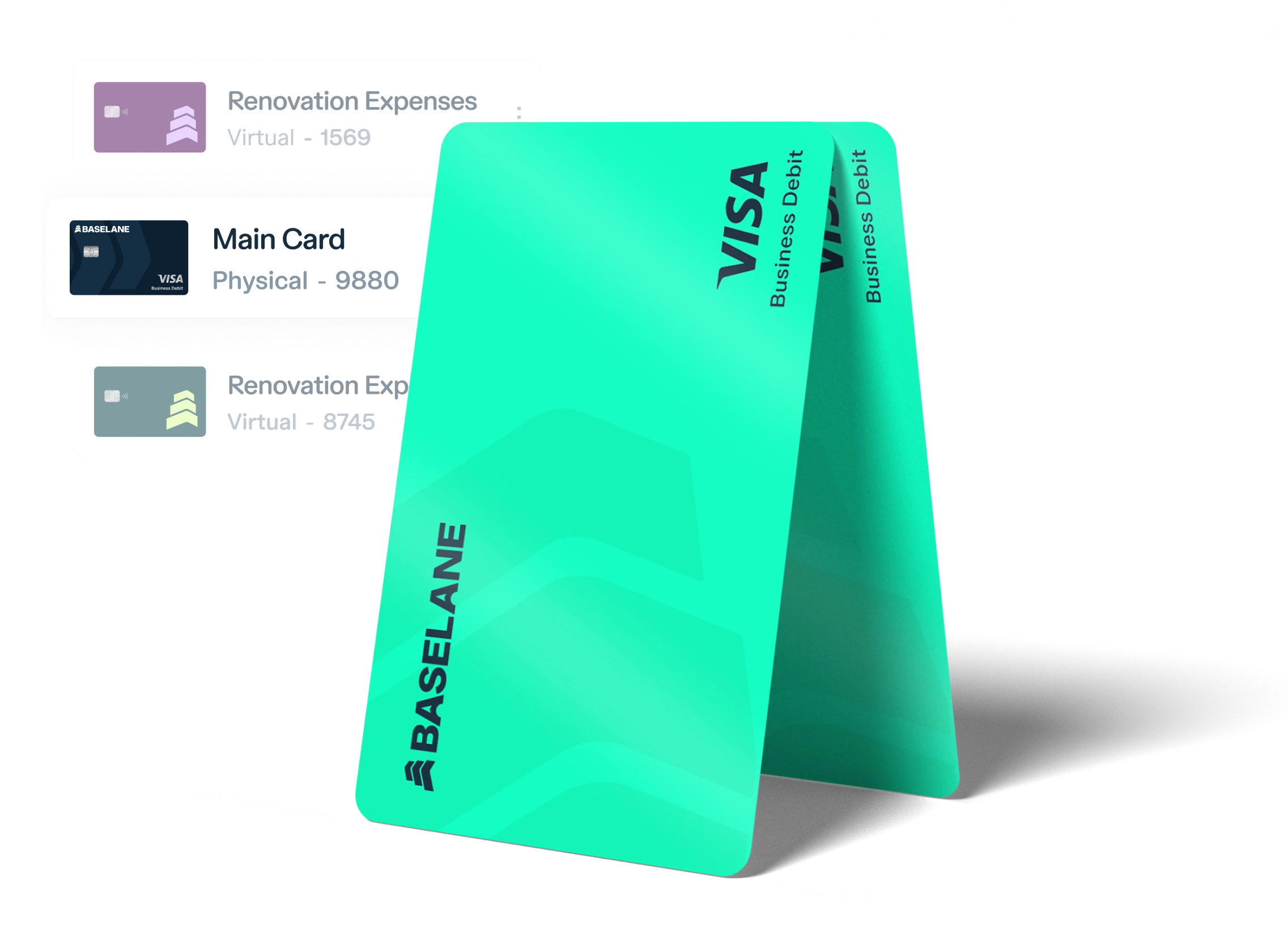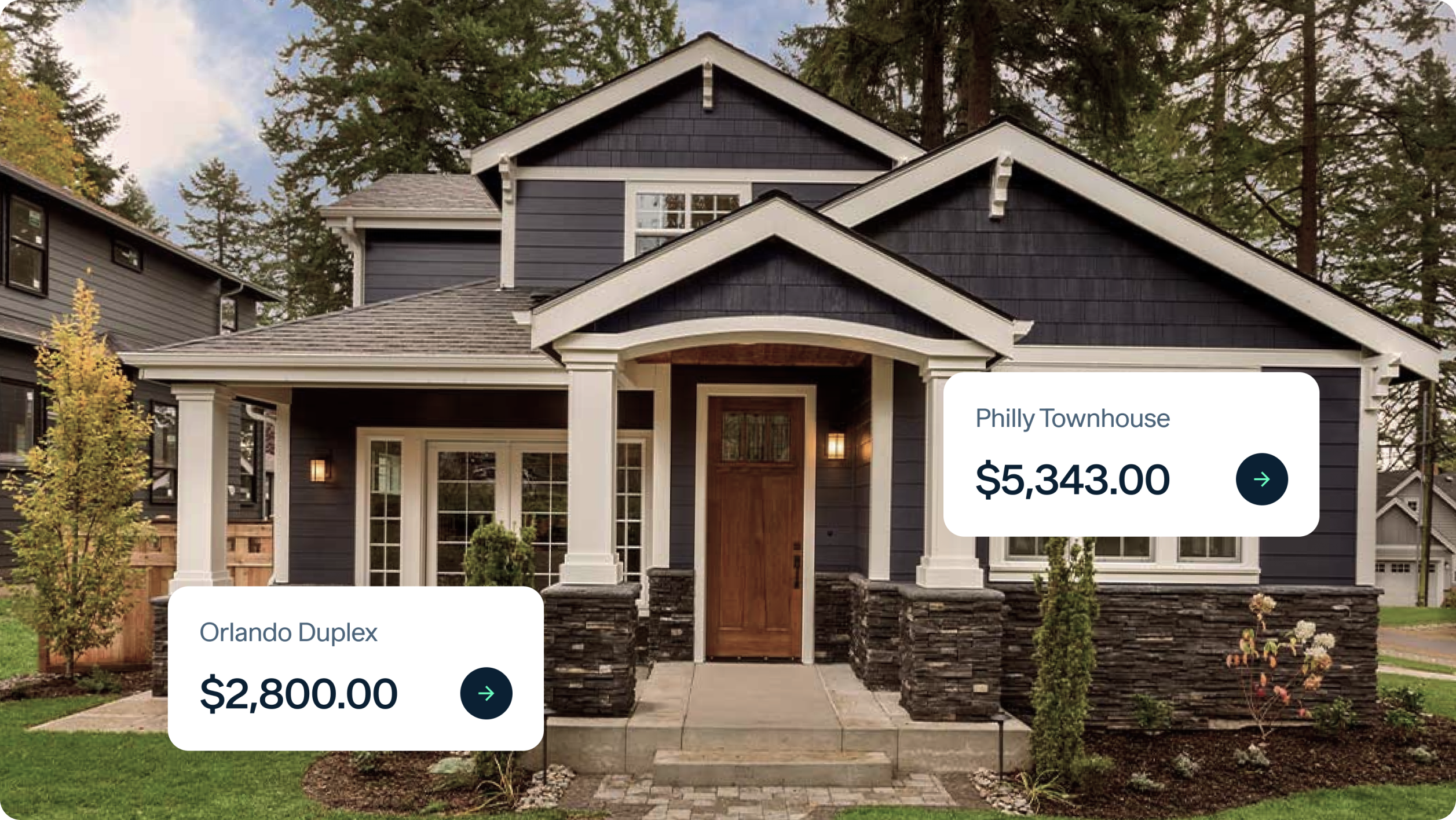Managing finances effectively is crucial for success in real estate investment. For investors operating as a Limited Liability Company (LLC), choosing the right business bank account is more than just a convenience; it’s a fundamental step for legal protection, streamlined accounting, and optimizing returns.
Finding a suitable account, especially one that’s genuinely free, requires careful consideration of specific real estate needs. This guide explores what real estate investors operating under an LLC should look for in a bank account, using 12 key questions to help you evaluate your options and find the best free business bank account for LLC structures in the real estate niche.
Key takeaways
- Using a separate business bank account protects your personal assets by maintaining the legal boundary between business and personal finances. It also simplifies bookkeeping, tax filing, and keeps your LLC compliant.
- Generic business checking accounts often lack features like rent collection or property-level tracking. Platforms like Baselane and Stessa cater specifically to real estate investors.
- Top picks like Baselane, Bluevine, and Relay offer no-fee accounts with no minimum balance, saving you money month-to-month. These are ideal for maximizing rental income efficiency.
- The best accounts support sub-accounts per property, virtual cards, and sync with accounting tools like QuickBooks. These features streamline multi-property management and tax prep.
- Online banks offer high APYs, no fees, and real estate-specific automation that traditional banks usually lack. Unless you need branch access, digital-first solutions are superior for most landlords.
Why your real estate LLC needs a dedicated bank account
Operating a real estate business through an LLC offers significant advantages, primarily asset protection. Establishing a separate legal entity creates a barrier between your assets and potential liabilities arising from your rental properties. Maintaining this protection, often called “piercing the corporate veil,” relies heavily on keeping your business finances distinct from your ones. This is why a dedicated bank account for your real estate LLC is non-negotiable.
Beyond liability protection, a separate business bank account for landlords simplifies bookkeeping and tax preparation. Mixing personal and business transactions creates chaos, making it difficult to track income and expenses accurately for Schedule E deductions. A distinct real estate banks account provides a clear ledger, which is essential for financial analysis and ensures compliance.
Furthermore, a business account helps establish credibility and can be necessary for securing financing down the line. If you’re asking, “Do I need a business bank account for an LLC?”, the answer is a resounding yes to protect your assets and run a professional operation.
Free All-in-One Property Management Software
Online banking, rent collection, accounting and more-all in one place.
12 Essential questions when choosing a bank account for your real estate LLC
1. Is the account built for real estate businesses?
While most banks offer generic business checking accounts, some financial platforms are specifically designed for real estate investors and landlords. These platforms often provide features tailored to property management, such as integrated rent collection, property-level accounting, and specific reporting that traditional banks lack. An account built with real estate in mind understands the unique financial flows and reporting needs of this asset class.
2. Are there any monthly fees or minimum balance requirements?
A key priority for many investors is finding the best free business bank account for an LLC. Many banks, particularly online-only ones, offer no-fee checking accounts and require no minimum balance to avoid monthly charges. This is particularly beneficial for new or small-scale investors where every dollar counts.
Avoiding monthly fees directly impacts your bottom line, helping you retain more of your rental income. Learning how to avoid bank fees is a critical skill for maximizing investment returns.
3. Can I open the account online?
The ability to open a business bank account online for an LLC is a significant convenience, especially for busy investors. Many online-only banks and fintech platforms offer seamless digital application processes. This eliminates the need to visit a physical branch and allows you to set up your account quickly, regardless of your location. Finding a free business bank account for an LLC online is highly feasible today.
4. Does the bank support LLCs and provide proper documentation?
Not all banks are equally equipped to handle business accounts for LLCs. Ensure the bank understands the documentation required for an LLC, such as Articles of Organization, Operating Agreements, and your Employer Identification Number (EIN). They should also provide clear statements and documentation formatted correctly for business use and tax reporting, supporting your LLC business bank account ledger. Some investors wonder, “Can I open a business bank account without an LLC?”. While possible with other structures, opening an account as an LLC requires the necessary formation documents.
5. Are sub-accounts or virtual accounts available?
For investors with multiple properties, organizing finances on a per-property basis is essential. The availability of sub-accounts or virtual accounts allows you to separate income and expenses for each rental unit or property, making accounting significantly easier. This feature is invaluable for accurate profitability analysis per property and simplifies Security deposit management, like how to open an escrow account for the landlord for landlord security deposit funds.
6. Is there an integrated rent collection?
Collecting rent can be time-consuming. Some modern banking platforms integrate rent collection tools directly into the account. This allows tenants to pay online via ACH or card, automates payment tracking, and simplifies depositing funds directly into your business account. This feature is a major time-saver for property managers and independent landlords alike.
7. What kind of transaction limits or restrictions apply?
Review the bank’s limits on transactions, including ACH transfers, wire transfers, and daily debit card spending. Some free accounts may have lower limits that could hinder your operations, especially if you manage a large portfolio or have significant expenses. Understanding these limits is crucial before you open a business bank account for LLC operations.
8. Does it offer interest (APY) on deposits?
While not all free business checking accounts offer interest, some provide a competitive Annual Percentage Yield (APY) on deposited funds, particularly on linked savings accounts. Earning interest on your operating capital can provide a small boost to your overall returns. Look for accounts with attractive APY rates, especially if you tend to hold significant cash reserves.
9. Are there built-in expense tracking or reporting tools?
Manual expense categorization is tedious. Some business accounts, particularly those designed for real estate, offer automated transaction tagging or provide tools that help you categorize expenses based on IRS Schedule E categories. This can drastically simplify bookkeeping and preparation for tax season. Robust reporting features that show cash flow or property performance are also highly beneficial.
10. Can the account be connected to my property management or accounting software?
If you use separate property management or accounting software (like QuickBooks, Xero, or Buildium), check if the bank account seamlessly integrates with it. Easy connectivity allows for automated data import, preventing manual entry errors and saving valuable time on reconciliation.
11. Is the account FDIC-insured and backed by a reputable bank partner?
Ensure your deposits are safe. The account should be FDIC-insured, protecting your funds up to the standard limits (currently $250,000 per depositor, per insured bank, for each account ownership category). Understand which bank partner holds the deposits if using a fintech platform. A reputable bank partner ensures regulatory compliance and reliability.
12. Does it support multiple users or team access?
If you work with partners, family members, or plan to hire help in the future, consider whether the account supports multiple users with customizable permissions. This allows others to assist with financial tasks without granting full access to sensitive information.
Top free/low-cost business bank accounts for real estate LLCs
Baselane
Baselane is specifically built for landlords and real estate investors. It offers a fee-free business checking account with no minimum balance requirement. Deposits are FDIC-insured up to $3M through Thread Bank. Baselane excels with unlimited virtual or physical sub-accounts for each property, integrated rent collection via ACH or card, and automated Schedule E expense tagging. It also offers competitive APY on linked savings accounts (up to 3.35% as of research). While primarily online, it supports LLC accounts and provides robust reporting.
Bluevine
Bluevine offers a fee-free online business checking account with no minimum balance or monthly fees. It provides competitive APY on qualifying balances (up to 1.5% or higher as per research) and supports online opening for LLCs. Bluevine offers features like multiple payment options (ACH, wire), and while not real estate specific, its online accessibility and cost-effectiveness make it a popular choice for various small businesses, including real estate.
Stessa
Stessa, owned by Roofstock, also offers banking specifically for real estate investors, integrated with its property management software. Stessa Cash Management offers fee-free checking with no minimum balance. It provides features like property-level banking and aims to simplify real estate accounting, including expense tracking integration with its platform. Stessa also offers high APY on cash balances (up to 3.98% as per research). It’s an online-only platform built for real estate investors.
Relay
Relay (formerly Relay Financial) provides business checking accounts with no monthly fees or minimum balance requirements for its standard plan. It allows users to open up to 20 individual checking accounts, which can be used to separate finances by property. Relay supports online opening for LLCs and integrates with accounting software like QuickBooks and Xero.
While not exclusively focused on real estate, its multiple sub-account feature is highly beneficial for investors. Relay also offers competitive APY on savings accounts (up to 3.76% as per research).
Comparing options against the 12 questions
| Feature / Question | Baselane | Bluevine | Stessa | Relay |
|---|---|---|---|---|
| Built for Real Estate? | Yes (specifically Landlords/Investors) | No (General Small Business) | Yes (specifically Real Estate Investors) | No (General Small Business, good features) |
| Monthly Fees? | No | No | No | No (Standard Plan) |
| Minimum Balance? | No | No | No | No (Standard Plan) |
| Online Opening? | Yes | Yes | Yes | Yes |
| Supports LLCs? | Yes | Yes | Yes | Yes |
| Sub/Virtual Accounts? | Yes (Unlimited, per property) | No | Yes (Per property) | Yes (Up to 20 checking accounts) |
| Integrated Rent Collection? | Yes | No | Yes (Integrated with Stessa platform) | No |
| Transaction Limits? | Standard limits apply | Standard limits apply | Standard limits apply | Standard limits apply |
| APY on Deposits? | Yes (Up to 3.35% on Savings) | Yes (Up to 1.5 %+ on checking/linked) | Yes (Up to 3.98% on cash balance) | Yes (Up to 3.76% on Savings) |
| Expense Tracking/Reporting? | Yes (Auto-tagging, Schedule E) | Basic | Yes (Integrated with Stessa platform) | Basic, via integrations |
| Software Integrations? | Yes (Accounting) | Yes (Accounting, Payment Processors) | Yes (Integrated with Stessa platform) | Yes (Accounting, Payroll) |
| FDIC Insured / Partner Bank? | Yes (Up to $3M via Thread Bank) | Yes (Up to $250k via Evolve Bank & Trust) | Yes (Up to $250k via Blue Ridge Bank) | Yes (Up to $250k via Evolve Bank & Trust) |
| Multiple Users? | Yes | Yes | Yes | Yes |
Note: APY rates are subject to change. Information based on research data available at the time of writing.
Online vs. traditional banking for real estate investors
When seeking the best online business bank account for an LLC, you’ll encounter both online-only platforms and traditional banks.
Online banks and fintechs often specialize in niche features like those needed for real estate, offer higher APY, lower fees (or no fees), and streamlined digital experiences. They are excellent for accessibility and integration. However, they lack physical branches for cash deposits or in-person support.
Traditional banks offer branch access and a wider range of products like loans and credit cards, but their basic business checking accounts may have fees, lower APY, and fewer real estate-specific tools.
For a free business bank account for LLC focused purely on efficient cash management and integration, online platforms are often superior. For investors needing branch access or complex lending relationships, a traditional bank might be necessary, though finding a truly free option can be harder.
Opening a business bank account for your real estate LLC
Opening an LLC business bank account typically requires specific documentation to verify your business entity.
The business bank account for LLC requirements usually includes:
- Employer Identification Number (EIN): Your business tax ID from the IRS
- Articles of Organization: The document filed with your state to form the LLC
- LLC Operating Agreement: An internal document outlining ownership and management structure (required by some banks)
- Government-Issued IDs: For all individuals listed on the account or authorized signers
- Business Address and Contact Information
Many banks, especially the online ones, allow you to complete the application and submit these documents digitally. The process to open a business bank account for an LLC can often be completed within a few business days if you have all the required information ready.
Beyond checking: Other financial services for REI LLCs
While the core focus is on the checking account, real estate investors with LLCs may need other financial services. This includes separate savings accounts for security deposits, ensuring proper segregation of funds (important for compliance, especially when putting rent in escrow or handling tenant funds). Many platforms also offer debit cards, some with cashback rewards beneficial for business expenses.
For investors also interested in short-term rentals, exploring the best bank for Airbnb business might involve looking for accounts with features suitable for higher transaction volumes and integration with booking platforms.
Conclusion
Choosing the right business bank account is a critical decision for real estate investors operating as an LLC. By carefully evaluating options based on the 12 questions discussed, you can find a platform that not only offers a business bank account for an LLC with no fees and no minimum balance but also provides the specific features needed to manage your rental properties efficiently.
Whether you prioritize integrated rent collection, per-property accounting, or high APY on deposits, there’s likely a free or low-cost solution that fits your needs.
Look for platforms designed with real estate in mind to unlock powerful automation and reporting tools. Make sure the account supports LLCs seamlessly and offers the flexibility you need as your portfolio grows.
The best LLC business bank account is one that acts as a central hub for your real estate finances, freeing up time to focus on what matters most: growing your investments.
Ready to streamline your real estate finances? Explore platforms like Baselane that offer tailored solutions for landlords and investors.
FAQs
The best free business bank account depends on your specific needs, but consider options like Baselane, Bluevine, Stessa, and Relay, which offer fee-free accounts with features useful for real estate investors, such as sub-accounts and integrations.
Yes, to open a business bank account in the name of your LLC, you must first legally form the LLC and obtain an EIN. You cannot open an LLC account without the LLC itself.
Commonly required documents include your LLC's Articles of Organization, Operating Agreement, EIN, and government-issued IDs for account signers.
A separate account is crucial to maintain the legal separation between your personal and business finances, protecting your assets from business liabilities and simplifying tax preparation and bookkeeping.
Yes, but look for banks or platforms that offer multiple sub-accounts or virtual accounts that allow you to track income and expenses separately for each property under one main business account.






